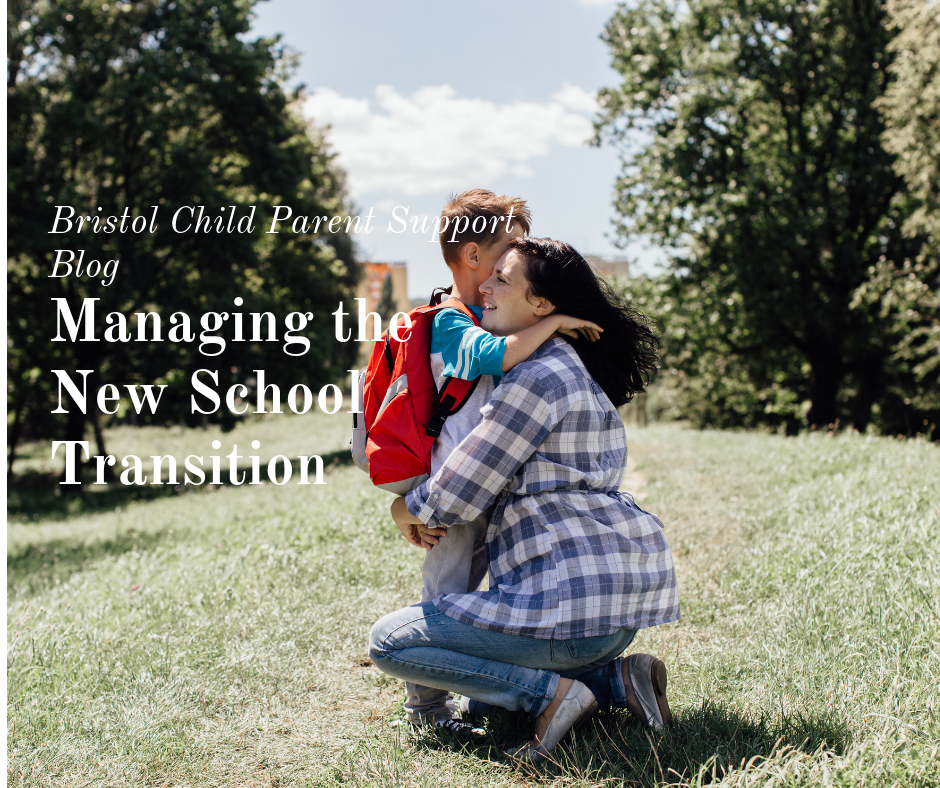Every parent knows starting school is not just about buying uniforms and pens. The transition brings many feelings, not just theirs. I know it may seem early to think about this. However, it’s always good to have a plan. Here are some ideas for transitioning to school and moving to Junior School.
Planning for the Start of School
Although most schools have excellent plans for managing the transition, these range from meeting you both at home to a graded change; however, entering a new place with unfamiliar routines and people can create Anxiety for you and your child.

What you may be Feeling
Parents shared many feelings over the years; here are just a few when their child started school or nursery.
- Sadness about your child growing up and moving onto the next stage of their life.
- Anxiety about whether a new school or teacher is best for your child
- Concerns about how your child may manage their anxieties
- Uncertainty regarding your role as a parent as your child will be entering a world without you.
- Sadness about leaving the staff at the nursery
- Thinking about a new stage in life for yourself and their child
Your feelings about the transition will influence how they handle the change and how your child feels about it. For example, sometimes, parents can be reminded of their bad times at school, such as finding the work hard or even being bullied. This can make it harder for you to be optimistic about your child starting school. Your child will feel more nervous when your fears are shared with your child.
Your child may have feelings too.
Although many children feel excited about starting school, they can also feel anxious and sad. At the nursery, they developed secure attachments. It is a place which is familiar and safe; don’t be surprised if they:
- Are clingier than usual, for example, crying when you go out of the room, wanting you to go everywhere with them
- Have disturbed sleep: difficulty settling, nightmares, early waking.
- Temporary regression, for example, a toilet-trained child may start wetting themselves, or your child may want to be ‘babied.’
- ‘Mild aggression, such as hitting or kicking more often than usual
- Being quieter than usual
- Having trouble concentrating
- Complain of tummy aches or headaches
What can you do to Ease the Transition
Many schools have excellent graded transition plans. However, they don’t ways highlight its emotionality from you or your child. Children who are anxious or have special needs may need extra help with the transition. Here are some general ideas to have in place:
- Start early; you can never begin preparing for a change too soon.
- Anticipate possible trouble spots ( your child may suffer from separation anxiety) and plan what to do if problems occur.
- Do contact the teacher to share behaviour plans. If your child may be anxious, contact the school to implement a clear drop-off plan. C children need safe adults they can attach to. Set a review meeting for the September term so you know there is a space to meet and review how it works.
- This is also important if your child has special needs; try writing a child-centred plan for the transition.
- Nearer the time, ask if your child can bring a comfort object from home.
- Start to discuss school at home gently throughout the summer. In readiness, talk about other transitions that have gone well. It’s good to do this in a picture or video form.
- Do some test runs throughout the summer.
- Be positive but, in addition, validate their feelings.
- Have friends they may be joining over to play in the summer.
- Allow your feelings; it is perfectly normal to have feelings about this. Talk it over with friends or family.
Why do some children struggle with Yearly Transitions?
Even if your child manages the first year, many parents wonder why they continue to struggle. There is no simple response to this; however, your child may have:
- Social Anxiety and being afraid of the group situation
- Been bullied may be afraid to go to school because his tormenters are there
- Separation anxiety might be frightened something terrible will happen to you if ththey’repart
- An insecure attachment style that makes transitions a little bit harder
- ADHD, social communication or Dyslexia and other learning difficulties. This can make children feel shame and embarrassment, leading to avoidance and problems as the summer holiday ends.
What can you do?
Be gentle, name their fears, be curious, and use language such as:
I wonder if, or maybe you might be worried about starting school
How can I help you, would it help to…….
I can understand you might be feeling…..and you have to go to school. I want to help you with this.
Try to plan for each new year and sit down and discuss with your child and their new teacher. S me children need to meet their teacher more than once and need the plan to manage the initial transition. This will help to alleviate any fears. You may need to visit the new classroom or school building several times. Many children change buildings when they move to junior school.
Remember, reassurance does not effectively manage Anxiety; mastering the feelings and having a plan and coping skills do.
I hope this helps everyone; if you need help, contact me for a consultation.



